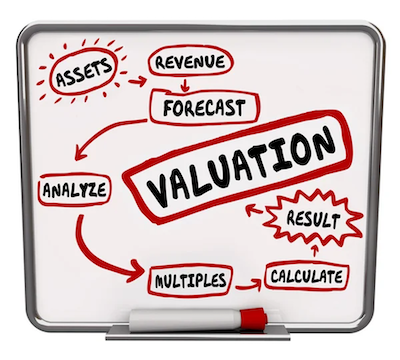7 Reasons to Have a Valuation Done on Your Business

Many business owners, CEOs and CFOs don’t engage in a formal business valuation exercise because they ‘think’ they know the value of their business. That can be a dangerous assumption.
The following are examples of when business leaders typically engage in a valuation exercise.
1. For a potential sale or acquisition: If you’re considering selling your business or acquiring another company, a business valuation can help you determine a fair price for the transaction. It can also help you negotiate better terms and ensure you’re getting a fair deal. For more on selling your company Here Are 5 Things You Need to Do and 1 You Don’t.
2. For financing purposes: If you’re looking to secure financing for your business, a business valuation can help you determine the amount of equity in your company. This can assist you in negotiating better terms with lenders and increase your chances of getting approved for funding.
3. For estate planning: When planning for your estate, a business valuation will help you determine the value of your business, improving the odds your assets are distributed according to your wishes. It can also assist you in minimizing estate taxes and avoid disputes among family members.
4. For partnership disputes: If you’re in a business partnership and there’s a dispute over the value of the business, a business valuation will provide an objective assessment of the company’s worth. This can help resolve disputes and ensure all parties are treated fairly.
5. For tax purposes: A business valuation can also be useful for tax purposes. A valuation can help in tax planning for estate and gift taxes, as well as capital gains taxes if you are considering selling your business.
6. For stock-based compensation: Many companies forgo this valuable compensation tool allowed under Section 409A of the Internal Revenue Code due to valuation concerns. This section of the Code contains a framework for private companies to follow when valuing their stock. The value of a share of your company’s common stock also sets the strike price for stock options. An independent third-party 409A valuation can make this compensation tool accessible and help avoid non-compliant penalties for shareholders.
7. For financial reporting purposes: An analysis of an acquired company and its intangible assets may be required for financial reporting purposes. Acquired assets and assumed liabilities are recorded on the balance sheet at their fair value as of the date of acquisition. If you already have goodwill on the balance sheet from prior acquisitions, you may need to have it tested for potential impairment.
Conclusion
Every business owner should know what their business is worth. Getting a business valuation is an important step in understanding the true value of your company.
As a planning tool, it can provide valuable insights that can help you make informed decisions about its future, whether you’re considering a sale or acquisition, securing financing, planning your estate, resolving partnership disputes, or dealing with taxes.
Identify your path to CFO success by taking our CFO Readiness Assessmentᵀᴹ.
Become a Member today and get 30% off on-demand courses and tools!
For the most up to date and relevant accounting, finance, treasury and leadership headlines all in one place subscribe to The Balanced Digest.
Follow us on Linkedin!
